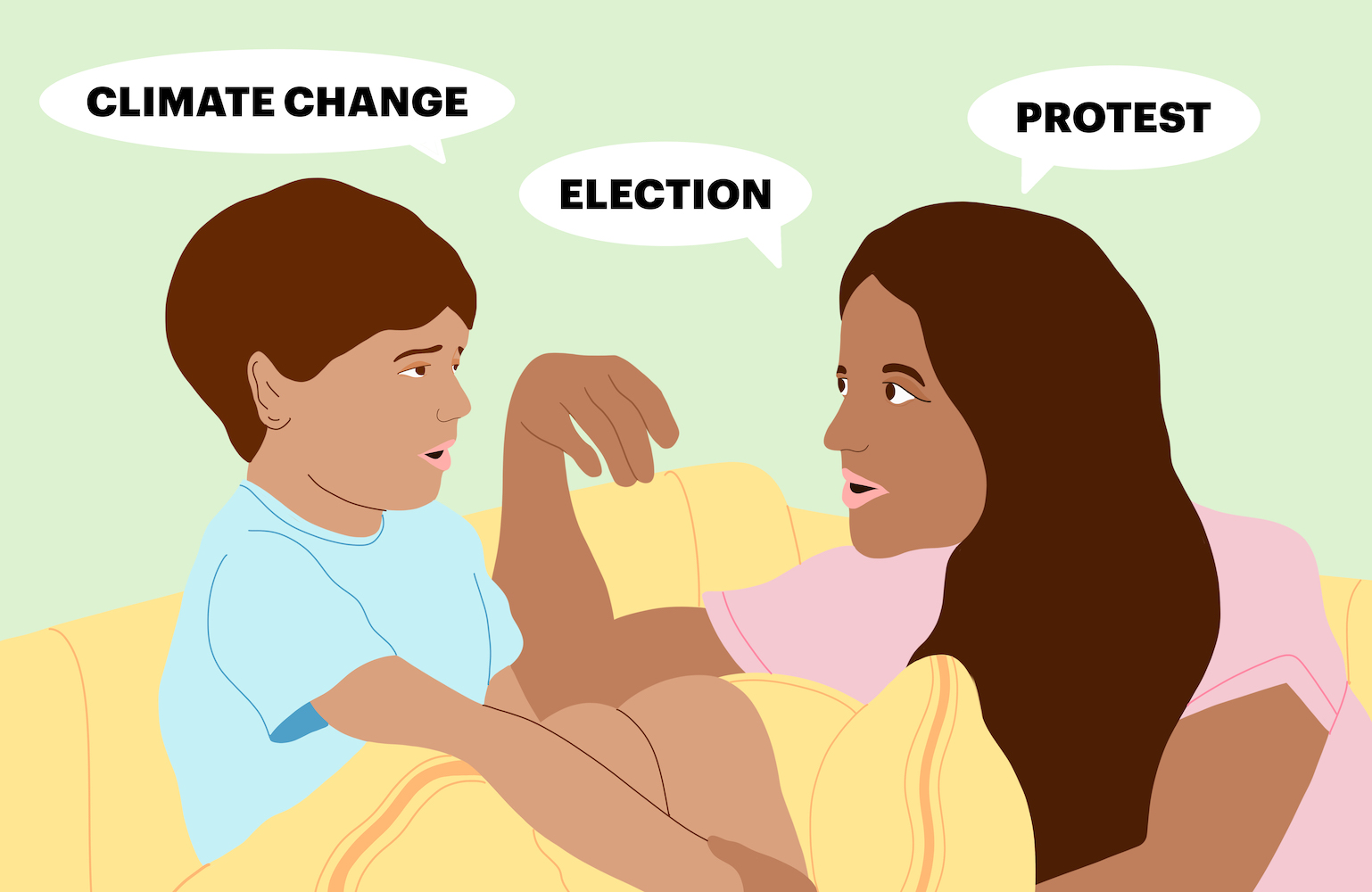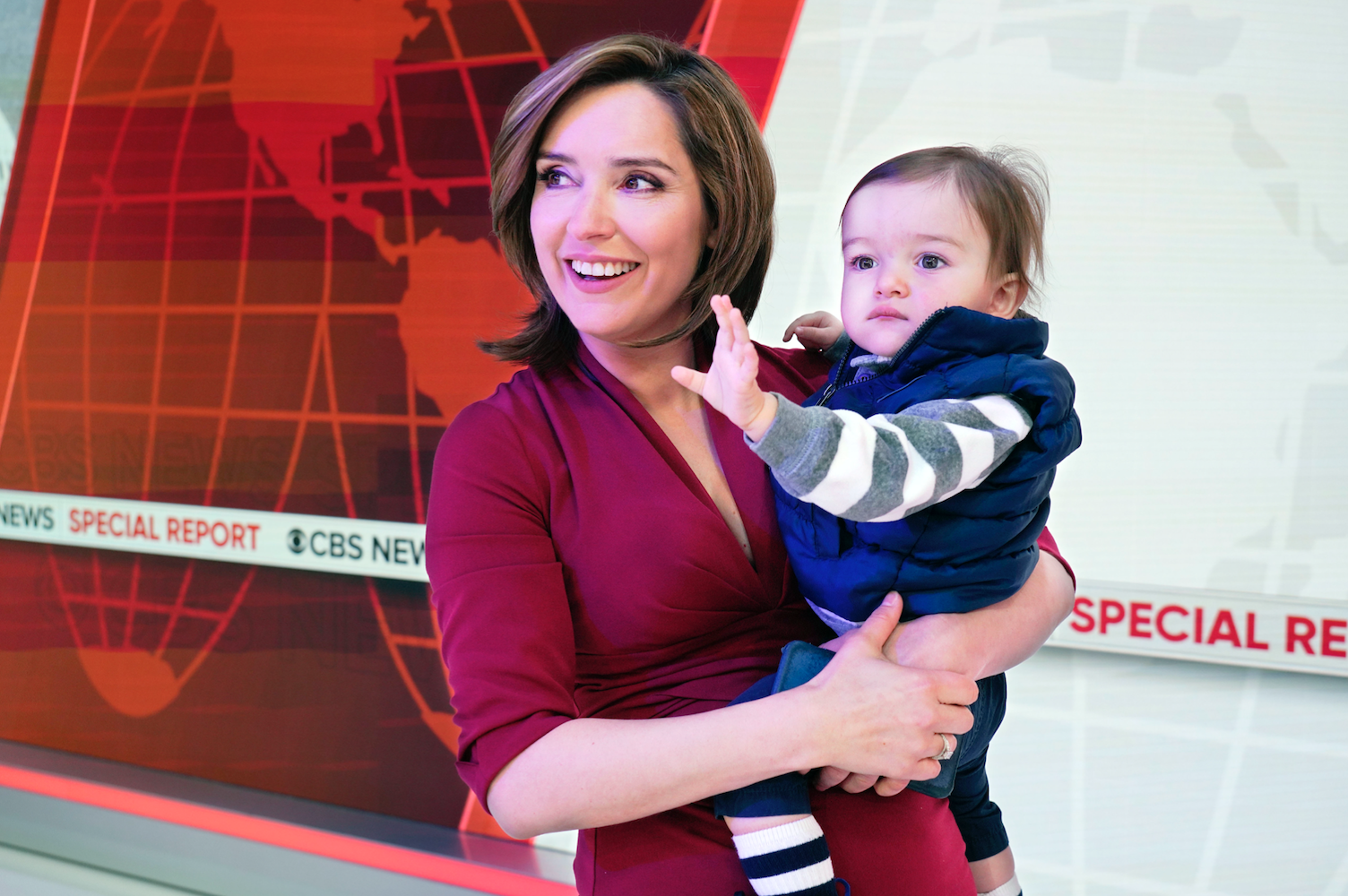
The first time it hit me was when my then nearly 2-year-old son began repeating phrases the Treasury Secretary had said during one of the daily COVID-19 press briefings that I was listening to while cooking dinner. This was during the lockdown when I thought I was mastering how to juggle child care and work all at once.
I realized that while my toddler may have been oblivious to any given day's content, he was still picking up the tone and tenor of the news cycle. In the current environment of reporting on dire statistics and numbers, that's not always positive. From that point forward, earphones during news broadcasts became mandatory for me and my husband. As one of my colleagues said to me: when it comes to kids, always treat conversations like there is a "hot mic" (in other words, assume you're being recorded) and that the cameras are rolling.
That doesn't mean we won't discuss the content of the news with our son as he gets older. I believe that keeping something on the hush-hush builds too much intrigue and would have the opposite effect. As a journalist, I fundamentally believe that keeping the public informed is an essential part of democracy. As a mom, I also know that many of the stories that I cover may impact our son's life in some form or another. And for parents across this country, we all need to stay mindful that we're raising the next generation of citizens who will shape this democracy and being informed is part of that process.
Here's how I plan to talk to my son about current events as he gets older and my advice to other parents.
I Will Keep it Age-Appropriate
While I know it's important for my son to know what's going on, I also understand the need to not share too much detail. I recall having my mother explain the war on drugs to me at age 6 and being totally terrified. Striking that balance is key.
Kids ask questions and answering them will be a cue to start filling in those blanks. As our son gets older and begins connecting concepts, we can increase the complexity of what we explain. I don't intend to intentionally frighten him as a method of dissuading him from doing something but rather try to explain the risk and reward.
When it comes to kids, always treat conversations like there is a \”hot mic\” (in other words, assume you\’re being recorded) and that the cameras are rolling.
I Won\’t Force My Own Opinion
Our country needs more people who listen, think for themselves, and treat each other with respect. Our children should not be told what to think but rather how to reason. I have heard friends and relatives tell their children that someone is a "bad" person because they disagree with the party or politics of that individual. I've heard them tell their kids that a candidate is not who "we" support. Our household is nonpartisan, but I also just fundamentally disagree with framing things in terms of "us and them" because it shuts down thought.
Explain what the facts are that backup or contradict a position. Help reason through it. We'll teach our child to be active and aware but won't use him as an unwitting billboard for a political cause.

I Will Teach Him to Do His Own Research
I recently asked a former top U.S. intelligence official her advice on how adults can avoid being manipulated, particularly on social media. She had decades of experience in how our adversaries manipulate information. Her bottom line: don't trust anyone or anything that tells you what to think. Pay attention to where the information comes from and whether it is a trusted source. As a journalist, it breaks my heart when people say things like, "I just don't know who or what to believe anymore."
I know so many journalists who strive for accuracy and not advocacy. Yet, I also see the crowded information space that we're in now where you can get an opinion just about anywhere these days and having a "hot take" on a topic is often more exciting than the person who spent months researching the issue.
That's why we will teach our son the importance of objective fact, and doing research to understand the context, and detail of an issue. If he has an opinion, he'll have to defend it.
I\’ll Help Him Embrace Diversity
In grade school, I used to sit with the New York Times Sunday edition. My parents encouraged me to do so. It excited me to see a snapshot of the entire world available at my fingertips. It also made me hungry to learn more; the topics we learned in school became more real and relevant. It eventually influenced me joining the news business.
Our son is growing up in a multicultural family and he's already being taught to appreciate other cultures and languages. He's ahead of where I was as a small child. Doing this early is important to me because I want him to know that he's part of a larger society. While there may be wars and negative news stories about certain places, there is also rich history and value in those same places even if they look different from where he is from.
I Will Encourage Him to Listen to All Sides
Seeking information and diversity of opinion is more important than ever. Do not just seek affirmation of your worldview. That's critical advice for adults but also applies to what we share with our children.
Lately, avoiding politics at large family gatherings has been not only hard to do but also necessary to keep sanity and peace. That's in part because our country has become too partisan, too factionalized, and unable to hear out the argument from the other side. Labels often stop conversations rather than start some necessary and difficult ones.
I Will Accept My Own Mistakes
I'm sure that we'll make some mistakes in this adventure of raising our son. But big picture: I see the news and current events as a reminder that these children are not just ours but rather the next generation that will be shaping our country and globe for decades to come.
Margaret Brennan is moderator of CBS News' Face the Nation and the network's senior foreign affairs correspondent. She is only the second woman in the show's 65-year history to hold the role.

